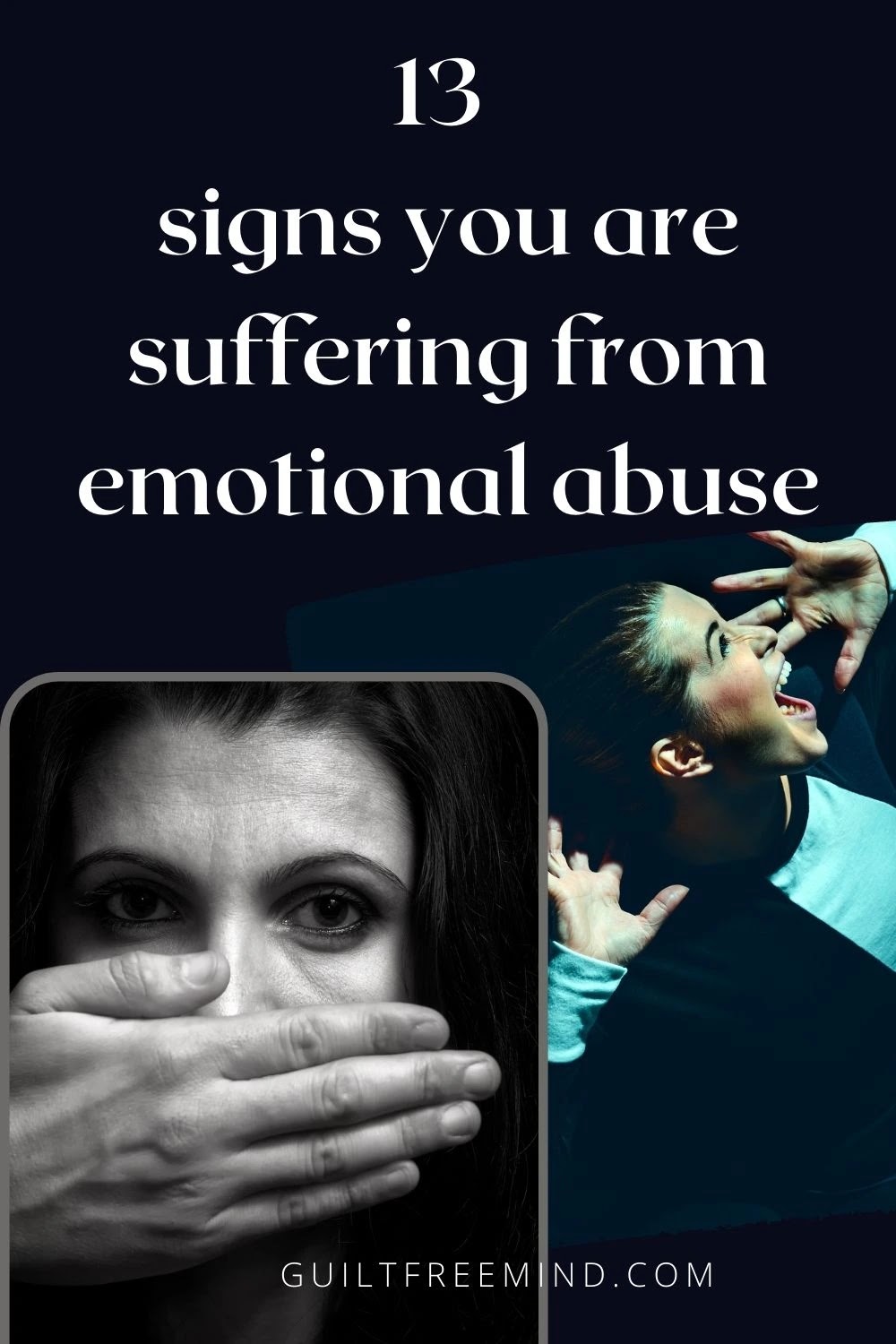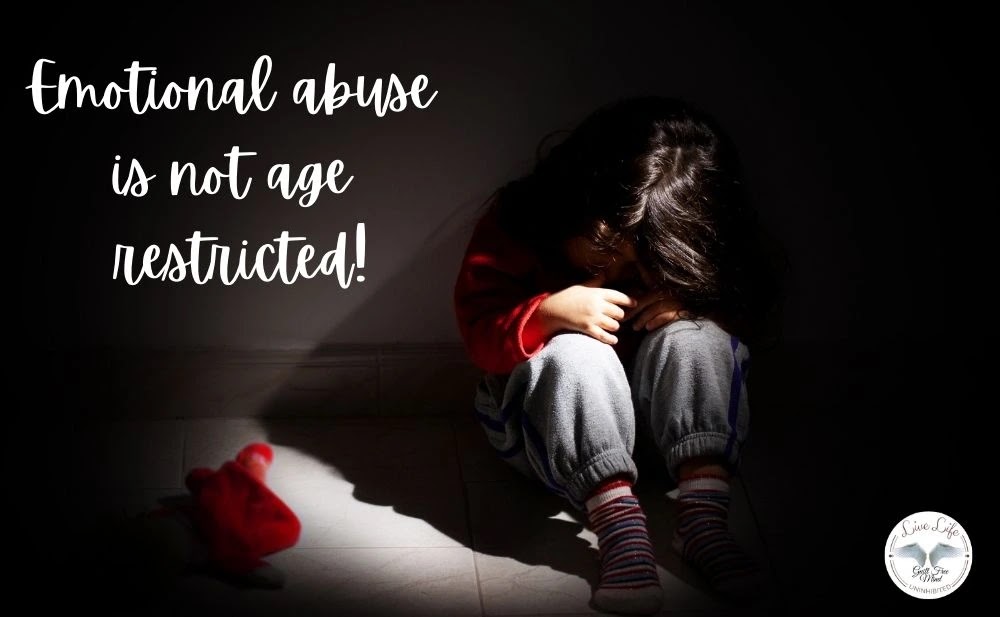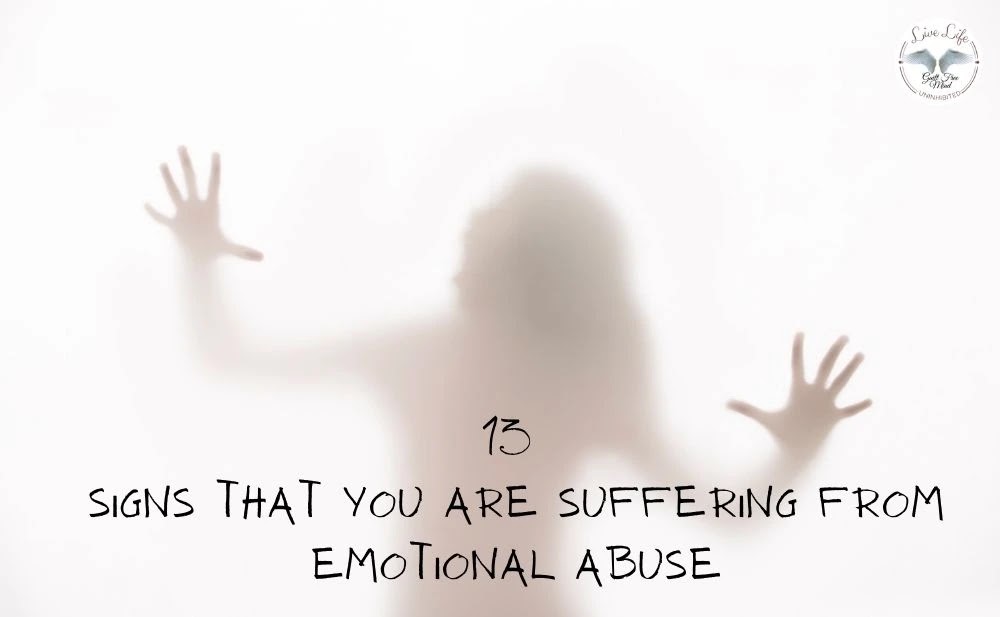Physical abuse is easy to identify, but emotional abuse is more sinister and insidious.
If a person is facing physical abuse, there will be visible signs. However, manipulation and toxic mind games are in play, making it very difficult to decipher that the person is going through emotional abuse. It has been observed that the victim may not themselves realize what is going on until it is too late. Part of the reason why emotional abuse is so hard to detect is that it comes coated in the mask of a caring attitude. Unfortunately, the emotional abuser can be anyone. It can be your partner, spouse, parent, caretaker, or friend. The abuser aims to frighten, isolate and finally gain complete control of the victim's mind.
It does not matter who is emotionally abusing you or what you have done. You do not deserve such treatment from anyone. You deserve better. Keep reading to the end to understand how to recognize the signs of emotional abuse and what you can do about it.
Pin it for reading later:
 |
| Pin this article for later |
Are you interested in reading more about maintaining a positive mindset and working towards healing your mind? If yes, then subscribe to the guilt free mind newsletter so I can keep you notified about the latest posts as and when they are released.
The primary problem with emotional abuse is that it is incredibly subtle. Physical or sexual abuse is much easier understood. But in emotional abuse, the abuser pretends to care and manipulates the victim in the name of caring. The abuser may even be kind and attentive to the victim for a period. This is defined as the grooming process of the abuser.
Unfortunately, there are multiple forms of exhibiting emotional abuse, including threatening, criticizing, ridiculing, name-calling, gaslighting, insulting, swearing, intimidating, stonewalling, belittling, line ignoring, manipulating et cetera. The scars of emotional abuse are in mind. Thus, they cannot be seen. However, the effect is profoundly dramatic. Victims of emotional abuse suffer from depression, anxiety, chronic pain, substance abuse, and PTSD, to name a few.
Since emotional abuse is not only restricted to the spouse or partner, I will be referring to the perpetrator as the abuser. This is for easy understanding of the article. I do not want to only discuss emotional abuse by a partner or spouse as parents, friends, or family members often become emotional abusers.
Warning signs that you are a victim of emotional abuse
You always try to work in a manner that does not disappoint the abuser.
You think 10 steps ahead. You already know what would be the answer to your question if you dare to ask. You constantly second guess yourself and edit your questions and answers to suit what your abuser might want to hear from you. One wrong word from your mouth, and all hell breaks loose. The abuser will not stop belittling you until you apologize for more times than you can count, are on your knees, and crying profusely.
The abuser constantly uses gaslighting to maintain control over you and the relationship.
The abuser dictates what the reality is. This can go on to the point where you start questioning your sanity. Common ways of identifying this behavior are,
- I never said anything like that
- You know I never lie
- You do not remember it correctly
To name a few.
Initially, they may indicate that you are under stress and are thus not able to remember the sequence of events in the proper manner. Eventually, they will use your self-doubt against you and say things like:
- You are a forgetful person
- You always forget what the reality is
- You are lying
and other self-doubt raising statements.
Such behavior increases your self-doubt and reduces your confidence in yourself.
Related articles:
Art therapy for stress reduction and management
Art therapy can help deal with PTSD
8 signs of a psychopathic mother and how to deal with her
How to cope with depression naturally?
Ridicule and apologize later
The abuser may ridicule, shout or belittle you in front of others. Then later, they may apologize. Examples of apology:- You know I did not mean that. Can you just let it go already?
- I do not understand why I said that. I must be drunk.
- I love you. What others think does not matter.
Once or twice such behavior can be forgiven. However, suppose the behavior continues regularly. In such circumstances, you must talk to the abuser and make sure they understand that such behavior is not appreciated.
Your abuser wants to know where you are every second of every day.
Your abuser may seem to show genuine concern about your whereabouts, but this is just another way for the emotional abuser to maintain control over the victim. This starts with calling up at random times to find out where you are. Eventually, this progress is to the abuser expecting the victim to constantly text and mention where the victim is at every point of the day. Your abuser may also limit your interaction with other people and expect you not to talk to certain people.
All of these will be under the canopy of 'care.' If you ask for your freedom, you will be emotionally blackmailed. For a while, the abuser may stop asking about your whereabouts. But this period will be accompanied by so many guilt trips that you will be the one who ends up apologizing to the abuser giving them the upper hand in the problem. These are enormous red flags that you are being emotionally abused.
The emotional abuser says things disguised as jokes to hurt you.
First, they will be sarcastic and say things that would leave a scar on your psyche. When you oppose, you will be told that it was a joke. You are humorless and should take life more lightly. However, the sarcastic remark has done its job. It has inflicted another self-doubt on the victim. You understand that the statement was not meant as a joke but as a direct hit. But you cannot do anything about the abuser refusing to accept that they were serious about their remark.
You apologize even when you do not understand what went wrong.
If you have grown used to hearing the word 'selfish, uncaring, do not care for others, everyone will leave you one day, you are nothing without my help, etc.' as a means to describe you. You are a victim of emotional abuse. Most often, the abusers make the victims feel selfish, stupid, and inconsiderate. The accuser will often accuse the victims of having these characters so that eventually, the victim starts to believe that they are thoughtless and not decent human beings.
Hot and cold behavior
When it suits the abuser, they will display a caring nature. However, if you do one single thing wrong, you will see the ice-cold side of the abuser. However hard you try to figure out what went wrong. It is impossible. The abuser will always say that everything is fine and still behave in a withdrawn manner. You will go crazy trying to understand what went wrong in the first place. However, there will never be an explanation. Eventually, you will start to blame yourself for things going wrong. This is what your abuser wants you to do. Done enough times, this can turn a confident and outgoing person into a constantly anxious and depressed shell of a person.
Related posts:
Mindfulness-based art therapy, the best of both worlds
Learn to say NO to say YES to a better mental health : 16 tips
20 Amazing self care journal ideas for a happier and healthier lifetime
Your good things are never acknowledged, and your accomplishments are constantly belittled.
When you do something good, it is attributed to the task being easy, or your achievement goes unacknowledged. Alternatively, your abuser may say, "I expected more from you." In other words, your efforts or accomplishments do not matter. You never receive a genuine compliment from the abuser.
If you are doubtful about being a sufferer of emotional abuse, check the following:
- Does the abuser ignore you or show little interest in your achievements?
- Do they pick up words from your sentences and use them against you?
- Do they have the capability of spinning any conversation in a manner that always ends up showing how grateful and selfish you are?
- Are you constantly being criticized for what you don't do?
You are left craving for money, affection, or any form of positive reinforcement from the abuser.
You do not necessarily need money for survival. But when affection, money, gifts are withheld, the relationship becomes toxic, and you should realize that you are being emotionally abused. Alternatively, the abuser may give you money but ask for the details of expenditure for every single cent that you spend. You may not realize that withholding financial support or affection is abuse. But, when such behavior continues for the long term, it shatters the victim's self-confidence in unimaginable ways.
You feel sorry for the abuser even though you are the one getting hurt.
Emotional abusers are experts at manipulating others. They can make you feel worse about yourself, even if it is not your fault. There will be times when you regret the person the abuser has become. This phase comes when you realize that you are being the subject of emotional abuse. You may even want to find out what happened that was so bad that it turned a person who could have been good into an emotional abuser. A primary reason victims of emotional abuse let the behavior slide is that they feel that the abuser might be hurt and are only lashing out because of it.
 |
| Emotional abuse can start an any age |
Plans always change
Commitment is vital in any relationship. Whether it is the relationship of a parent and child, two friends, spouses et cetera. When responsibilities are not honored, the relationships start to become chaotic. Your abuser may promise you that they will do something for you. However, they will always find a reason not to fulfill the commitment when the time comes. If you try to discuss your concerns, you will be called a selfish person who does not care for others. If you do not express your concerns, the behavior will continue. Eventually, you will start suppressing your own needs and desires because you know that your wishes never get fulfilled. Instead, you get name-called for no reason.
Constantly on guard
When you have to constantly be ready to defend your behavior, there is no room for positive communication. At this point, your self-confidence is shattered, and you are a puppet in the hands of your abuser. If you have to keep your shields up constantly and defend every action that you engage in, you are suffering from emotional abuse.
You deserve it
Any problem you land up in, your abuser will tell you, "you deserve it." The exact words 'you deserve it' may not be used, but the sentence's meaning would be the same. Suppose you decide to do a difficult task. You started it, but you got stuck in the middle. If you ask the abuser for help, the first thing that you will hear is that "you took on the difficult task, so do it all by yourself. I always told you that this is not something you should undertake". In other words, the abuser will always try to undermine your capability and gain the upper hand in the conversation.
No one cares
This is possibly the most damaging part of emotionally abusive relationships. The abuser will always tell you that only they care for you. No one else does. They will try to alienate you from anyone else who may care about you. The purpose of this alienation is to gain complete control over you. When you start to feel alienated, you may think that you are stuck in a mental jail cell with nowhere else to go. Alternatively, you may think that you are alone in this world despite having millions of people around you. This alienation is what makes the victim hopeless for the future. Hopelessness is a force that can push the person beyond the point of no return.
Other articles you may find interesting:
How to recover from ended relationships: 23 amazing tips
How to leave a toxic relationship in 13 steps and be free
Conclusion
If you feel that you may be a victim of mental and emotional abuse, trust your gut feeling. If the behavior of your partner, parent, friend, or acquaintance does not seem right, it probably is not. You do not deserve to be abused. You deserve to live a happy life. The best option is to talk to the other person. If talking is not an option, get out of the relationship as soon as possible. Sometimes, leaving the relationship is not an option. For example, if the abuser is your parent/s. Under such circumstances, you should try to maintain as much distance as possible from the abuser.
Leaving is the comparatively easy part. The hard part comes after this. When you rebuild your personality from those shattered pieces, that is when your strength of character is truly tested. To know how to recover from emotional abuse and gain back the lost self-confidence, stay tuned for the next blog post.
If you wish to read more about mental health-related articles, subscribe to the Guilt Free Mind. I can send you notifications about new article releases when they are published.
See you in my next article
Shruti
Pin this article for later:
 |
| Let's fight emotional abuse together |




